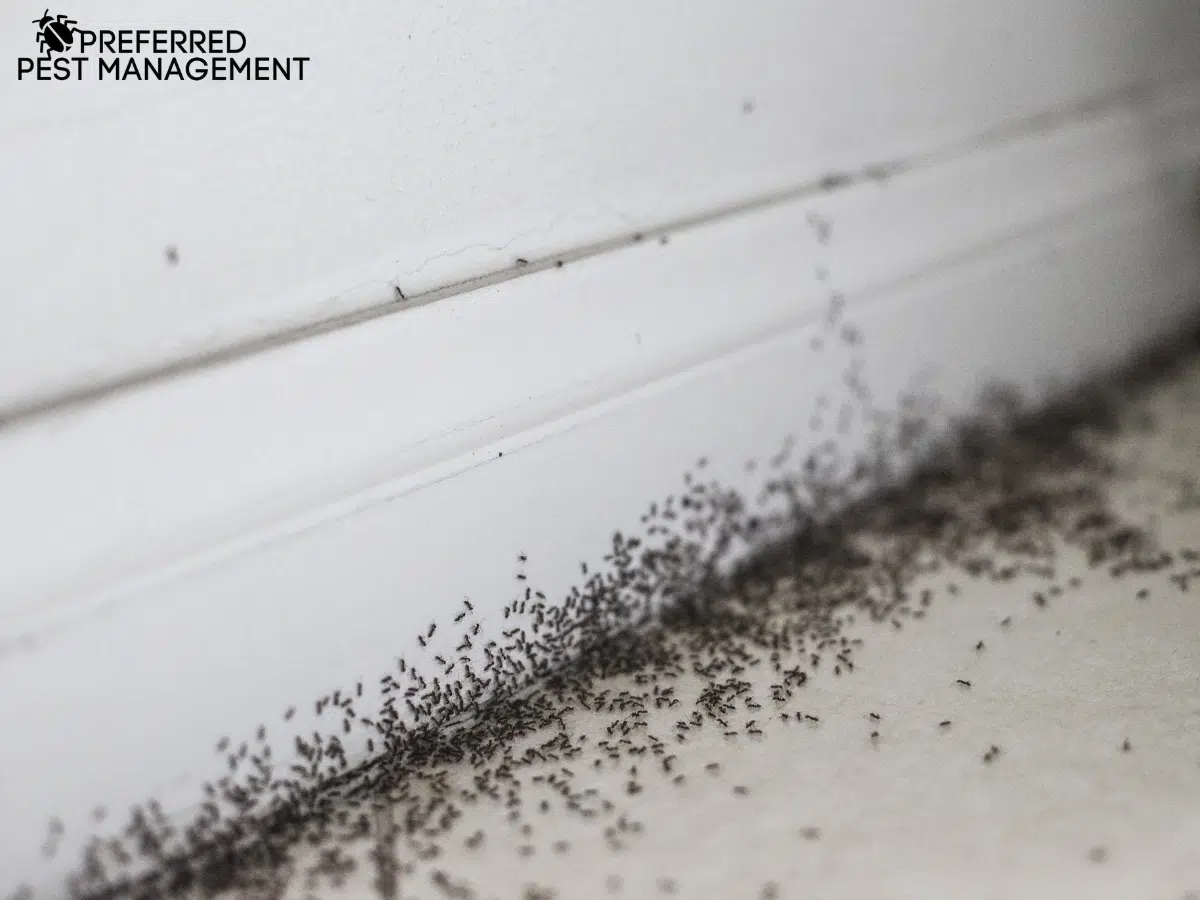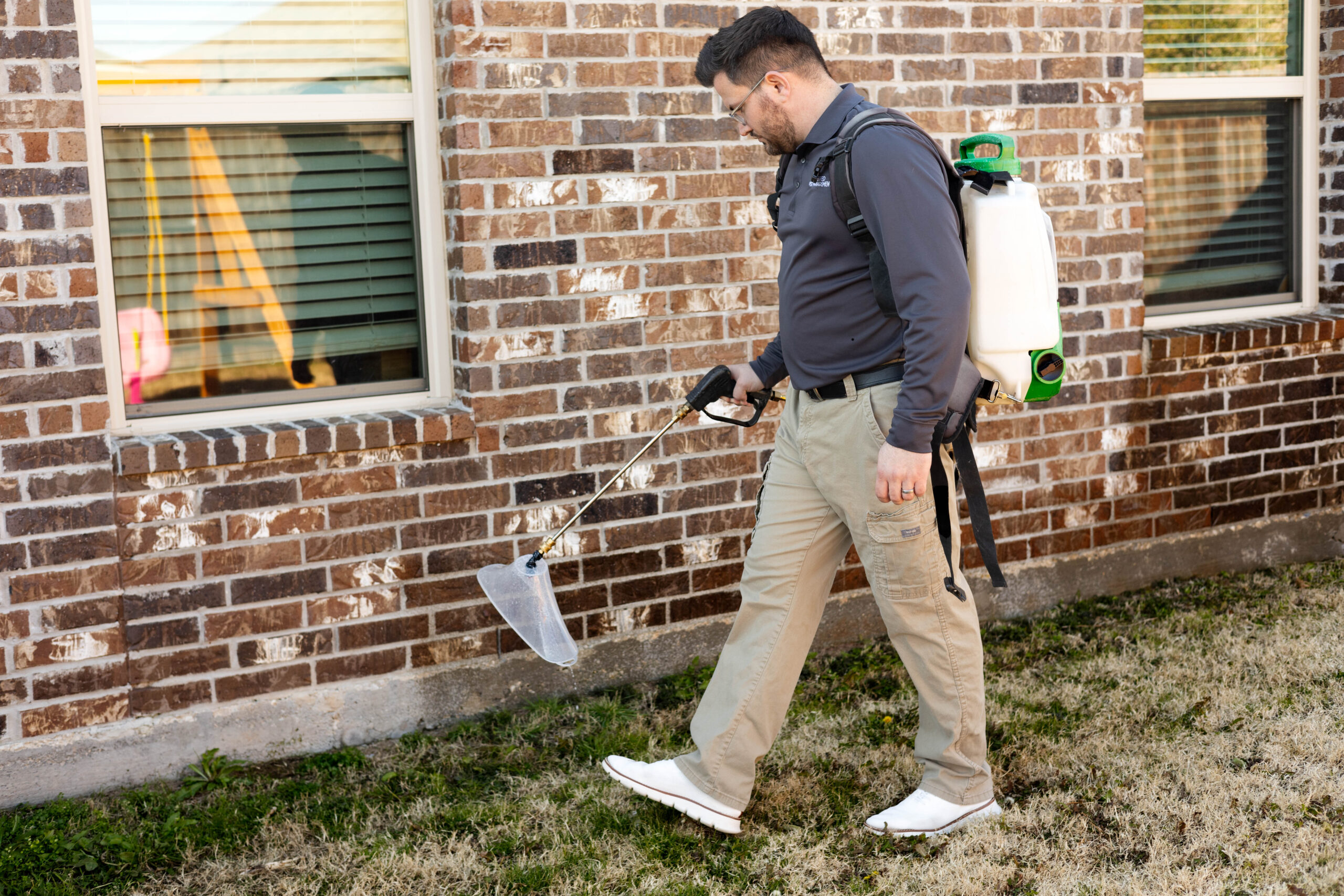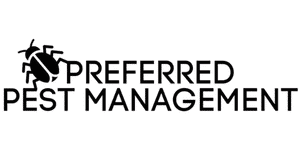Dallas Pest Guide: How to Identify and Treat Rover Ant Infestations
Let’s be honest—no one wants to find trails of tiny ants marching through their Dallas home. If you’re noticing clusters of small, fast-moving ants in your kitchen, bathroom, or even making their way across your patio, you could be dealing with rover ants. In recent years, these troublesome little pests have become an all-too-common annoyance for Dallas homeowners.
The good news? You don’t have to put up with rover ants taking over your space. In this Dallas Pest Guide, you’ll learn everything you need to know about how to identify rover ants, why they show up, and—most importantly—how to treat a rover ant infestation effectively.
What Are Rover Ants?
Rover ants are a relatively recent invader in the Dallas-Fort Worth area, but they’ve made themselves right at home. These ants are tiny (about 1/16” long), brown to black in color, and move quickly in erratic patterns.
You won’t find them making traditional ant mounds in your yard—and that’s part of what makes them tough to spot and tougher to eliminate.
How to Identify Rover Ants in Dallas

So, how do you know if it’s rover ants and not another type of ant? Here are some signs to look for:
- Size & Color: Small (1/16”), usually dark brown or black.
- Behavior: Unlike other ants, they move in rapid, zigzag patterns—not tidy lines.
- Location: Indoors (kitchens, bathrooms, pantries); outdoors (under mulch, landscape timbers, near foundations).
- No Smell (When Crushed): Unlike other ants, rover ants give off no strong odor when squished.
- No Defined Trails: They seem scattered and random instead of organized trails.
If you’re still unsure which ant you’re dealing with, the pros at Preferred Pest Management can help you with proper ant identification.
Why Are Rover Ants Attracted to My Home?
Like most pests, rover ants are on the lookout for food and moisture. You’ll often see them pop up:
- After rain, when their outdoor nests get flooded
- Near sources of moisture—think leaky pipes, AC units, or damp bathroom floors
- In areas with sugary spills or crumbs (they’re not picky eaters!)
- During hot, dry weather, seeking cooler shelter indoors
Dallas’ unpredictable weather patterns make homes especially attractive to these opportunistic insects.
DIY Treatment: What You Can Do Yourself
Many homeowners want to tackle an ant infestation on their own before calling in the cavalry. Here are some DIY steps that can offer short-term relief from rover ants:
Eliminate Food & Water Sources
– Wipe up crumbs and spills right away (don’t skip under appliances!)
– Store food in airtight containers, including pet food
– Fix leaks and use a dehumidifier in damp spaces
Seal Entry Points
– Inspect molding, baseboards, and around windows and doors
– Use caulk to fill gaps and cracks where ants may sneak in
Try Ant Baits, Not Sprays
– Gel and bait stations can help reduce rover ants because they carry the bait back to their nest
– Sprays usually only kill the ants you see (and often scatter the rest)
It’s important to know: DIY solutions almost always work temporarily—rover ants are excellent at finding new routes, and their colonies are widespread. That’s why many Dallas families choose Preferred Pest Management for long-lasting results.
Find more in-depth guidance in our ant control services section.
Professional Rover Ant Treatment in Dallas

Here’s where the experts shine. When you call Preferred Pest Management for a rover ant infestation, here’s what you can expect:
- Thorough inspection to pinpoint where ants are nesting and entering
- Use of advanced, non-repellent baits that target the whole colony
- Customized treatment plans for your home and situation
- Advice on how to prevent future infestations (because keeping them out is just as important!)
- Follow-up visits as needed—we won’t leave you in the lurch
Our treatments are safe for your family and pets, and we always prioritize your peace of mind.
FAQ: Dallas Rover Ant Infestations
Will sprays from the store get rid of rover ants for good?
Unfortunately, they rarely solve the whole problem—sprays can spread the infestation by causing colonies to relocate or split.
Are rover ants dangerous?
While they’re mostly a nuisance and don’t bite or sting, their constant presence in food areas can be frustrating.
How fast can an infestation get out of hand?
Very fast! You can go from seeing a few ants to hundreds in just a day or two if the problem isn’t addressed at the source.
Can I prevent rover ants from returning?
Regular cleaning, sealing entry points, and professional pest prevention visits are the best ways to keep rover ants out for good.
Recap: Take Back Your Dallas Home from Rover Ants
If rover ants are making themselves at home in your kitchen or bathroom, don’t wait for them to invite all their friends. Spotting them early is key, and while you can take some DIY steps, persistent infestations almost always need a pro’s touch.
Preferred Pest Management has your back, with years of expertise in Dallas pest control and proven techniques that keep pests where they belong—outside your home.
If you’re in the Dallas, TX area, give Preferred Pest Management a call—we’re here to help.
Other Common FAQs:
- What time of year are rover ants most common? — Late spring through fall, especially after big rainstorms or heatwaves.
- Do you offer preventative pest control for Dallas homes? — Absolutely! Regular pest treatments keep all types of ants and other invaders in check. More tips are found on our blog.
- Will you treat outdoor ant nests too? — Yes! Our full property plans cover indoor and outdoor infestations for total protection.


